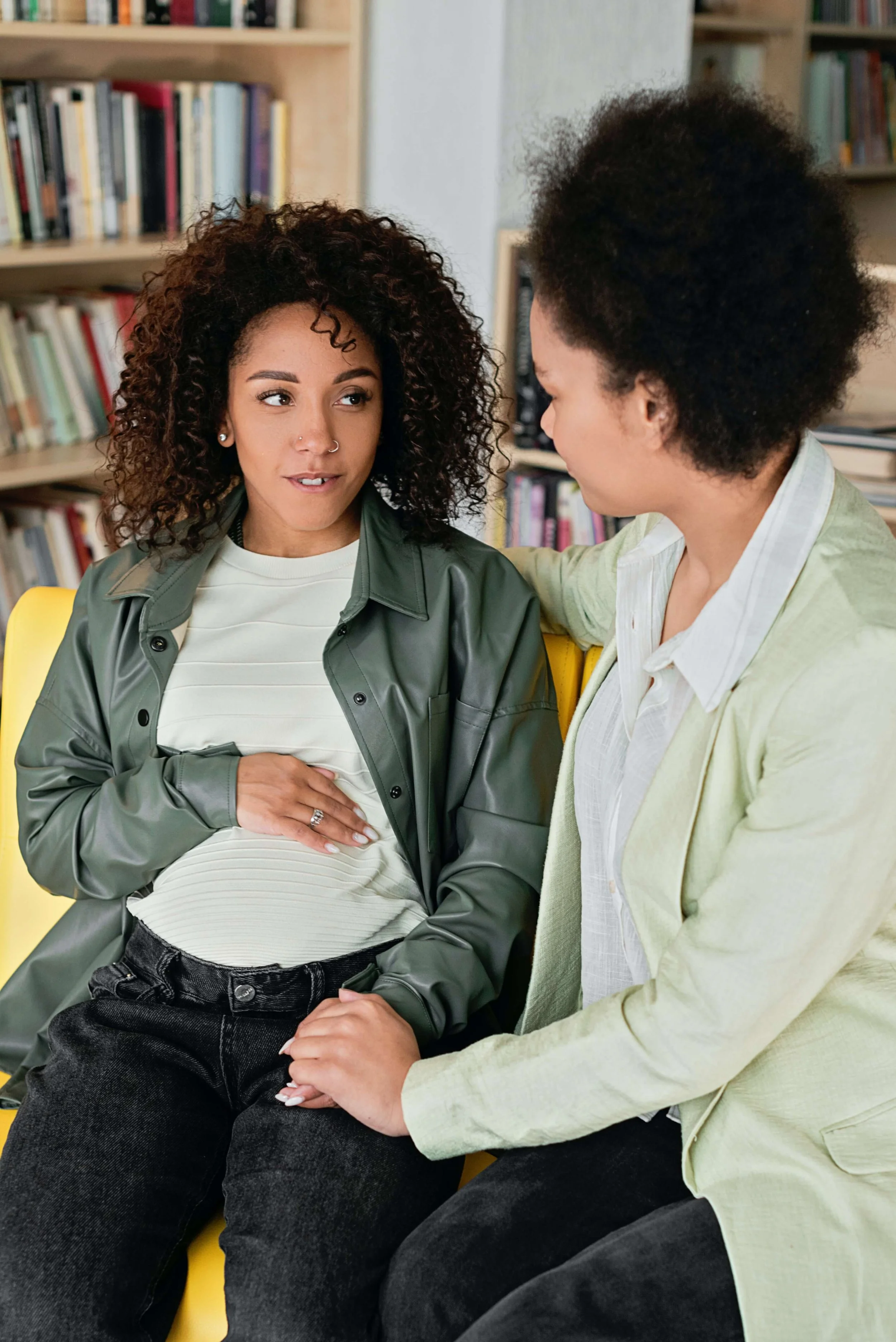LGBT Couples Therapy: Things Your Couples Therapist Should Understand
We’ve heard some well-meaning therapists say that LGBT couples therapy is no different than therapy for straight couples. As great as that would be, it’s similar to saying you don’t see color or race; it’s dismissive. So while it’s true that there are many elements of LGBT couples therapy that are the same as therapy for straight couples, there are some unique elements and experiences that LGBT couples deserve to have understood by their therapist.
Here are the six most common and unique issues that come up for LGBT couples in therapy.
Addressing Coming out/Visibility & Stages of Development In LGBT Couples Therapy
Partners at different stages of coming out
It’s common for partners to be at different stages of coming out. One partner may have been out and visible in their sexual or gender identity for years, while the other is newly embracing and exploring their identity. Read more about embracing your LGBT identity through affirmative therapy.
Discrepancy in identity formation and relationship challenges
Differences in identity development can lead to added strain on a relationship, as the partners undergo the journey of their own identity formation while navigating the challenges of a relationship. This can also lead to disagreements about what level of visibility is acceptable with family, co-workers, friends and their community.
Intersectionality and cultural backgrounds
The intersectionality of partners from differing cultural backgrounds can further complicate this exchange; if one partner is from a more conservative or religious culture, it can stress a relationship where the other partner doesn’t share that background.
Intimacy issues and mismatched libidos
With differing levels of outness you sometimes get differing levels of experience and comfortability with sexuality, which can sometimes lead to intimacy issues and mismatched libidos. LGBT relationships aren’t all about sex, but sex is a part of most romantic relationships. Having a healthy sex life with well-matched libidos brings couples a lot of joy. Sometimes, improved communication can greatly enhance a couple’s sex life.
Addressing Communication In LGBT Couples Therapy
Identifying communication roadblocks
Just like straight couples, LGBT couples can run into frequent communication roadblocks. People often need an outside perspective to identify and start addressing them.
The "4 Horsemen of Relationship Doom" and their antidotes
Dr. John Gottman identified what he termed the “4 Horsemen of Relationship Doom”:
o Criticism
o Contempt
o Defensiveness
o Stonewalling
The good news is that each of these horsemen have an identified antidote: gentle startup, building a culture of appreciation, taking responsibility, and self-soothing. A great couples therapist who is trained in Gottman’s approach will help you and your partner address any of the horsemen that might be present so you feel more connected and loved again.
LGBT couples' communication dynamics
Dr. John Gottman is the only researcher to date who has done longitudinal research on how LGBT couples communicate, and the results are encouraging! In LGBT relationships, generally there is a more egalitarian dynamic, leading to more fair play and less arguments related to power/control. This is especially true for lesbian couples. Same sex couples tend to use more humor and affection when they are in conflict compared to straight couples, and demonstrate lower physiological arousal in conflict.
Egalitarian dynamic and conflict resolution strategies
LGBT couples are generally better at self-soothing AND soothing each other, while heterosexual couples have been found to be more affected by partner’s criticism and less likely to give affection compared to gay couples. Gay men tend to withdraw and exude less affection compared to lesbian couples, who seem to use more humor, engagement in conflict.
Addressing Family Planning In LGBT Couples Therapy
Complexity for LGBT couples
When LGBTQ+ couples decide to expand their families, there is often an added layer of complexity compared to straight couples. Family planning for LGBT couples often includes many decisions that are at once logistical, financial, and emotional, and might bring up strong feelings of sadness, frustration, or dysphoria.
Emotional challenges and potential for discrimination
Science has made leaps and bounds that allow many couples, regardless of orientation, have an easier time expanding their families, but the emotional rollercoaster can be quite intense. Some LGBT couples may feel resentful that other couples can have children without intending to, while the processes of IVF, surrogacy, or adoption are expensive, emotional, time consuming, and full of potential for homophobic discrimination.
Balancing joy, frustration, and disappointment
These additional decisions, steps, and barriers to expanding a family might tarnish what could otherwise be a joyful time in a couple’s life. A good couples therapist can help couples balance the joy and anticipation with the frustration and disappointment and make greater meaning out of the experience.
Addressing Gender Roles In LGBT Couples Therapy
Transgressing societal norms
Here is some great news for LGBT couples: queerness is at its core about transgressing societal norms, which includes gender roles. LGBT couples are much better than their straight counterparts at creating relationships without default gender roles, customizing their day to day lives to suit their actual skills and interests.
Navigating unclear gender roles and expectations
There is always the possibility of some couples defaulting to a heterosexual norm. In some relationships a more feminine partner may fall into traditional women’s roles and a more masculine partner may lean into traditional men’s roles. Sometimes this is a dynamic that works and feels comfortable for both partners, but problems can arise when trying to navigate unclear gender roles and expectations, which can lead to conflict.
Clarifying expectations around domestic labor
There is no right or wrong way to embody gender roles or lack of gender roles, but it should feel good to both partners. Therefore, it’s important to clarify each partner’s expectations around domestic and emotional labor. It can be helpful to explore each partner’s perception/messaging around gender roles growing up & how it influenced their expectations in the relationship today. A good couples’ therapist can help to facilitate these conversations.
Addressing Family of Origin Issues In LGBT Couples Therapy
Differing levels of acceptance from families
Navigating differing levels of acceptance from each other’s families can strain an otherwise happy relationship. Having family members disapprove of your relationship, your partner, or your identity can lead to stress on the partnership. It can also make moments of gathering and celebration, such as holidays, birthdays, weddings, funerals, and other life milestones painful and difficult to navigate.
Coping skills, setting boundaries, and turning towards each other for support
A good couples therapist can help teach both partners coping skills to manage the stress from family fallouts and rejection, and help both parties learn to set appropriate boundaries with toxic family members. Relationships thrive when partners turn towards each other instead of away from each other while under pressure from family and friends. Couples therapy can help LGBT couples continually work to maintain a United Front.
Addressing Homophobic Violence and Internalized Homophobia In LGBT Couples Therapy
Risks of homophobia, violence, and micro-aggressions
LGBT couples continue to face risks of blatant homophobia, unprovoked violence & micro-aggressions. There is also the reality of less blatant, often subtle acts of homophobia that, when combined over a lifetime, produce the same internal result as a single violent act of homophobia. Couples therapy can be a place for LGBT couples to process these experiences in safety and learn coping skills to manage stress and heal
Internalized homophobia effects on relationship, attachment, and mental health
Over time, internalized homophobia can deeply affect mental health & corrode emotional intimacy in a relationship. That’s why it’s important for an LGBT couples therapist to explore each partner’s attachment history, how discrimination has impacted the person’s view of self, any history of harassment or abuse, and family reactions to coming out.
What to look for in an LGBT Couples therapist
Solid understanding of LGBT relationships, dynamics, and challenges
If you’re in an LGBT relationship and hoping to work with a therapist, make sure you find someone with a solid understanding of LGBT relationships, dynamics & challenges like the ones above. They should also have experience working with LGBT couples.
Importance of shared identity
For some LGBT folks, it’s critical that their therapist share their identity. For others, it doesn’t matter as much. Only you can decide if shared identity is important. Ultimately, what’s important is that you find a couples therapist who is accepting, open-minded and most importantly, makes you feel safe and understood.
LGBT Couples Therapy In San Francisco, Los Angeles, Santa Cruz, and Throughout California and Florida
If you’re looking for a skilled, affirmative LGBT therapist, lesbian marriage counseling, or lesbian couples therapist look no further. Our LGBT couples therapists have extensive experience working with the LGBT community and understand what’s different and unique. We’re here to support you and help you build and maintain the healthiest, happiest relationship possible. You deserve it. Book a free consultation today.







